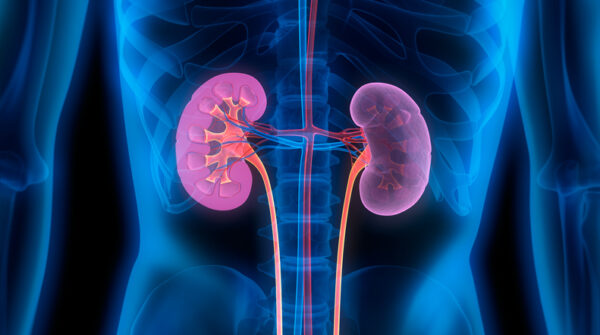
Chinook Therapeutics has stopped testing of a liver disease therapy after a healthy patient in an early-stage study developed an unexpected complication believed to be a reaction to the experimental drug.
The serious adverse event prompted investigators to halt dosing of the drug, CHK-336. Chinook, a Seattle-based biotech, said it is voluntarily pausing the study to further investigate the matter. The FDA has been notified via a suspected unexpected severe adverse reaction report.
CHK-336 is in development for treating primary hyperoxaluria, a rare disease that leads to the buildup of oxalate in the body. Oxalate is a compound produced by the liver and also found in some foods. Primary hyperoxaluria stems from an inherited deficiency of an enzyme needed to break down oxalate so it can be filtered by the kidneys and then excreted in urine. The resulting oxalate buildup develops into kidney stones, which can in turn lead to chronic kidney disease that progresses to kidney failure. The Chinook drug is a small molecule designed to block lactate hydrogenase, or LDHA. This enzyme is key to the final step in oxalate production in the liver.
The Phase 1 study was designed to evaluate single and multiple-ascending doses of CHK-366. According to Chinook, the drug was generally well tolerated by 62 study participants at single doses up to 500 mg and multiple doses up to 60 mg taken daily for 14 days. The reported adverse event occurred in a patient given a 125 mg dose. The event had a rapid onset followed by rapid recovery, the company said. The complication is being investigated as potential hypersensitivity to the drug or its excipients, the inactive ingredients that make up the pill formulation.
CHK-336 is the third drug candidate that Chinook has advanced into human testing. The company’s lead program is atrasentan, a small molecule currently in Phase 3 testing in the rare kidney disease immunoglobulin A nephropathy. Another program, an antibody drug called BION-1301, is in Phase 2 testing in the same disorder.
In a research note, William Blair analyst Matt Phipps said that while the prospects for CHK-336 as a treatment for hyperoxaluria are intriguing, the drug is not a value driver for the company given its early stage of development. Instead, investor interest is centered on atresantan’s pivotal study, which is expected to post preliminary data in the fourth quarter of this year.

A Deep-dive Into Specialty Pharma
A specialty drug is a class of prescription medications used to treat complex, chronic or rare medical conditions. Although this classification was originally intended to define the treatment of rare, also termed “orphan” diseases, affecting fewer than 200,000 people in the US, more recently, specialty drugs have emerged as the cornerstone of treatment for chronic and complex diseases such as cancer, autoimmune conditions, diabetes, hepatitis C, and HIV/AIDS.
HI-Bio Eyes Pivotal Test of Antibody Drug Licensed From MorphoSys
In other kidney disease news, Human Immunology Biosciences (HI-Bio) reported positive results Tuesday from two separate Phase 2 tests of an antibody drug in development for treating primary membranous nephropathy (PMN), a rare disorder with no FDA-approved therapies.
The drug, felzartamab, is an antibody designed to target CD38, a protein abundant on plasma cells. These cells produce autoantibodies that cause autoimmune problems and they are believed to drive PMN. The HI-Bio drug is designed to deplete CD38-positive plasma cells.
South San Francisco-based HI-Bio reported data for an open-label Phase 1b/2a study that enrolled 31 patients who were given nine doses of the study drug over five months. A separate two-arm, open-label Phase 2 study enrolled 24 patients to evaluate two doses over two weeks and five doses over two months. Hi-Bio said the most durable reductions in an autoantibody called aPLA2R were observed in the Phase 1b/2a study. Results showed “early and substantial reductions” of aPLA2R levels as early as one week, where the median reduction was 45%. Most of those who responded to the treatment showed maintenance or a deepening of their response through 12 months.
Based on the mid-stage results, HI-Bio said it plans to advance felzartamab to Phase 3 testing after discussions with regulators. HI-Bio licensed felzartamab from MorphoSys last June. Last November, the biotech revealed $120 million in financing to support a pipeline of other drugs in development for treating autoimmune diseases. One of them is immunoglobulin A nephropathy—the same target Chinook is pursuing with its lead program.
Photo: peterschreiber.media, Getty Images













